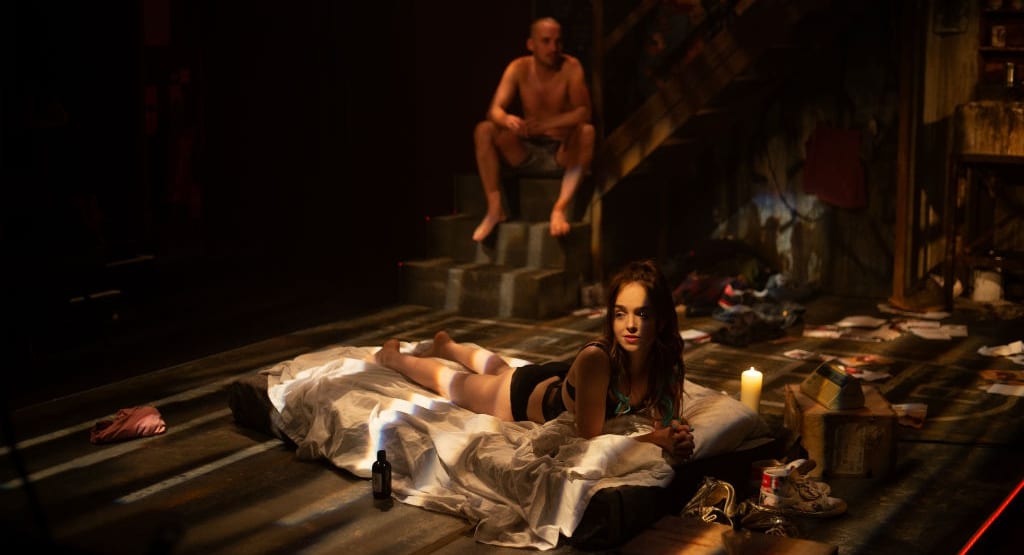The play is a dystopian sci-fi drama written in the eighties, just after it was found that AIDS might be sexually transmitted. It is placed in a near future (of the eighties) in a New York that has been strictly split into areas for people tested positive and negative. The system seems totalitarian, with little space for individual life choices. In the middle of all this, Blue who is negative (Louisa Connolly-Burnham) and Torch (Robert Rees), who is positive and quarantined in a run-down ghetto of the infected, cannot forget about each other.
The sixty minutes are filled with philosophising about whether restrictions and isolation in the times of a plague are worth the resignation of love – physical love in particular.
Overall, Beirut is quite obviously written in the eighties, which is shows in the way it presents the near future. While this gives the performance a nice retro touch, it may have been interesting to update some of the plot in order to make it more relevant for today’s society. While this may have been a quite eye-opening play forty years ago, the audience has changed and a different approach to sexually transmitted plagues might be more educative. However, this does not dimmish the quality of the play or the performance overall.
The plot itself lacks some explanation about the world it takes place in. While this can be intriguing and make a play more applicable to different spaces and times, it doesn’t work quite as well in this case. That may be down to the serious topic Beirut explores. It would be great to get more background information of how the plague started, how it spread and how it is dealt with in different places. There is only a short mention of rich people fleeing to the south of France, but that is about it. These missing puzzle pieces make the virus seem more like a background theme, rather than the main topic of the storyline. That seems to the characters relationship.
Nevertheless, Beirut fully deserves its four stars, as the performance of Louisa Connolly-Burnham and Robert Rees was incredibly engaging and absolutely convincing. They managed to bring humour into the most shocking scenes. This is also thanks how brilliantly Alan Bowne wrote the characters.
In the end, the play shows how obsessive love can turn if it is restricted. The wonderful character development gives the audience a great understanding of Blue and Torch and explores all the dimensions of their relationship. Even though not spelled out, we learn their history as a couple and how they reached the point at which they are now. However, the plot does not do the same for the world it takes place in. Therefore, Beirut might feel more like a relationship drama, rather than a play that explores a world where an AIDS-like virus has taken over.

